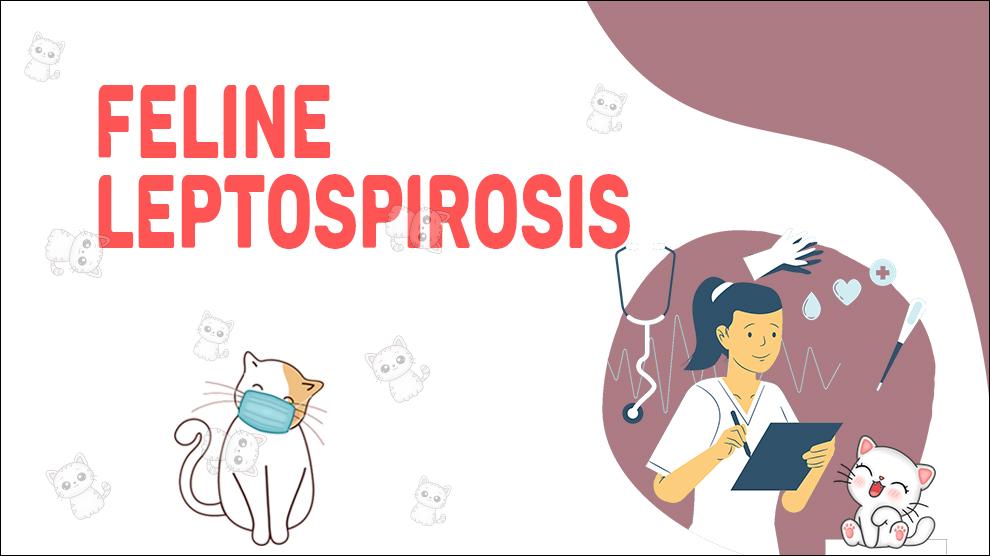What Is Cats Leptospirosis?
Feline Leptospirosis is a bacterial infection caused by the Leptospira bacteria, which can affect cats of any age or breed.
This infection is transmitted through contact with infected animals, contaminated water, or soil.
Leptospirosis can also be spread from mother cats to their kittens.
Clinical Signs Of Cats Leptospirosis
The symptoms of feline leptospirosis can vary depending on the severity of the infection.
Some common symptoms include:
- Fever
- Vomiting
- Diarrhea
- Loss of appetite
- Lethargy
- Jaundice (yellowing of the skin and eyes)
- Abdominal pain
- Dehydration
- Increased thirst and urination
- Difficulty breathing
- Muscle pain and stiffness
- Stiff Gait
- Shivering
- Weakness
- Depression
- Blood In Vomit
- Blood In Stool
- Bloody Vaginal Discharge
- Dark Red Gums
- Discoloration Of Eyes
- Coughing
- Rapid Breathing
- Irregular Pulse
- Nasal Discharge
- Swelling In Gums
- Swelling Of The Lymph Nodes
- Reluctance To Move
- Depression
Treatment Options For Cats Leptospirosis
Treatment for feline leptospirosis usually involves antibiotics such as penicillin or doxycycline, which can help to kill the bacteria in the bloodstream.
In some cases, hospitalization may be necessary to provide supportive care such as fluid therapy and oxygen supplementation.
Severe cases may require blood transfusions, plasma transfusions, or dialysis to help support the cat's organs until they are able to recover.
It's important to note that some cats may become carriers of the bacteria even after successful treatment, so close monitoring and follow-up with your veterinarian are important to prevent future infections.
Home Remedies For Cats Leptospirosis
There are no home remedies for feline leptospirosis, and attempting to treat the disease at home can actually do more harm than good.
If you suspect that your cat may have been exposed to leptospirosis, it is important to seek veterinary care as soon as possible.
How To Prevent Cats Leptospirosis?
Prevention is key when it comes to feline leptospirosis, as the disease can be difficult to treat once symptoms have developed.
The best way to prevent infection is to keep your cat away from areas where infected animals may have urinated, such as standing water or areas with a lot of wildlife.
Keeping your cat indoors can also help to minimize its exposure to the disease.
Vaccines are available for some strains of leptospirosis, so speak with your veterinarian to determine if vaccination is appropriate for your cat.
Affected Cat Breeds Of Leptospirosis
All breeds of cats are susceptible to feline leptospirosis, although outdoor cats and those living in rural areas may be at higher risk of exposure.
Causes For Cats Leptospirosis
Causes:
Feline leptospirosis is caused by the Leptospira bacteria, which can be found in the urine of infected animals.
The bacteria can survive in the environment for several weeks, and cats can contract the infection by coming into contact with contaminated water or soil.
Infected animals, such as rodents, wildlife, and livestock, can also transmit the bacteria to cats.
When To See A Vet For Cats Leptospirosis?
If you suspect that your cat may have been exposed to leptospirosis or is exhibiting any of the symptoms mentioned above, it is important to seek veterinary care as soon as possible.
Early diagnosis and treatment can help to minimize the risk of severe complications and improve your cat's chances of full recovery.
Food Suggestions For Cats Leptospirosis
While there are no specific dietary recommendations for cats with feline leptospirosis, it is important to encourage your cat to drink plenty of water to prevent dehydration.
Your veterinarian may also recommend a prescription diet or supplements to support your cat's kidney and liver function during treatment.
Conclusion
Feline leptospirosis is a serious bacterial infection that can cause severe and potentially fatal complications in cats.
Early diagnosis and treatment are key to improving your cat's chances of full recovery, so it is important to seek veterinary care as soon as possible if you suspect that your cat may have been exposed to the disease.
Prevention is also important, so be sure to keep your cat away from areas where infected animals may have urinated and speak with your veterinarian about vaccination options.











